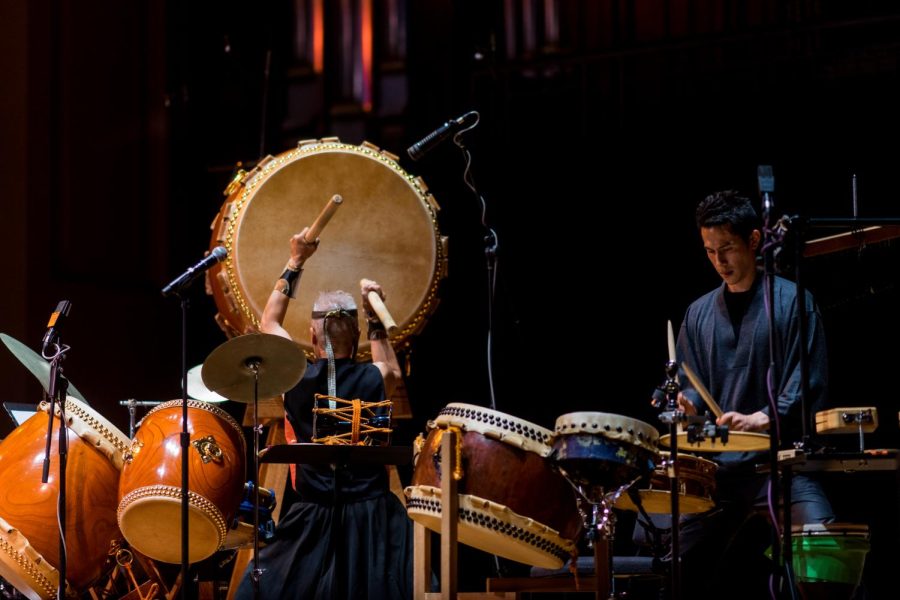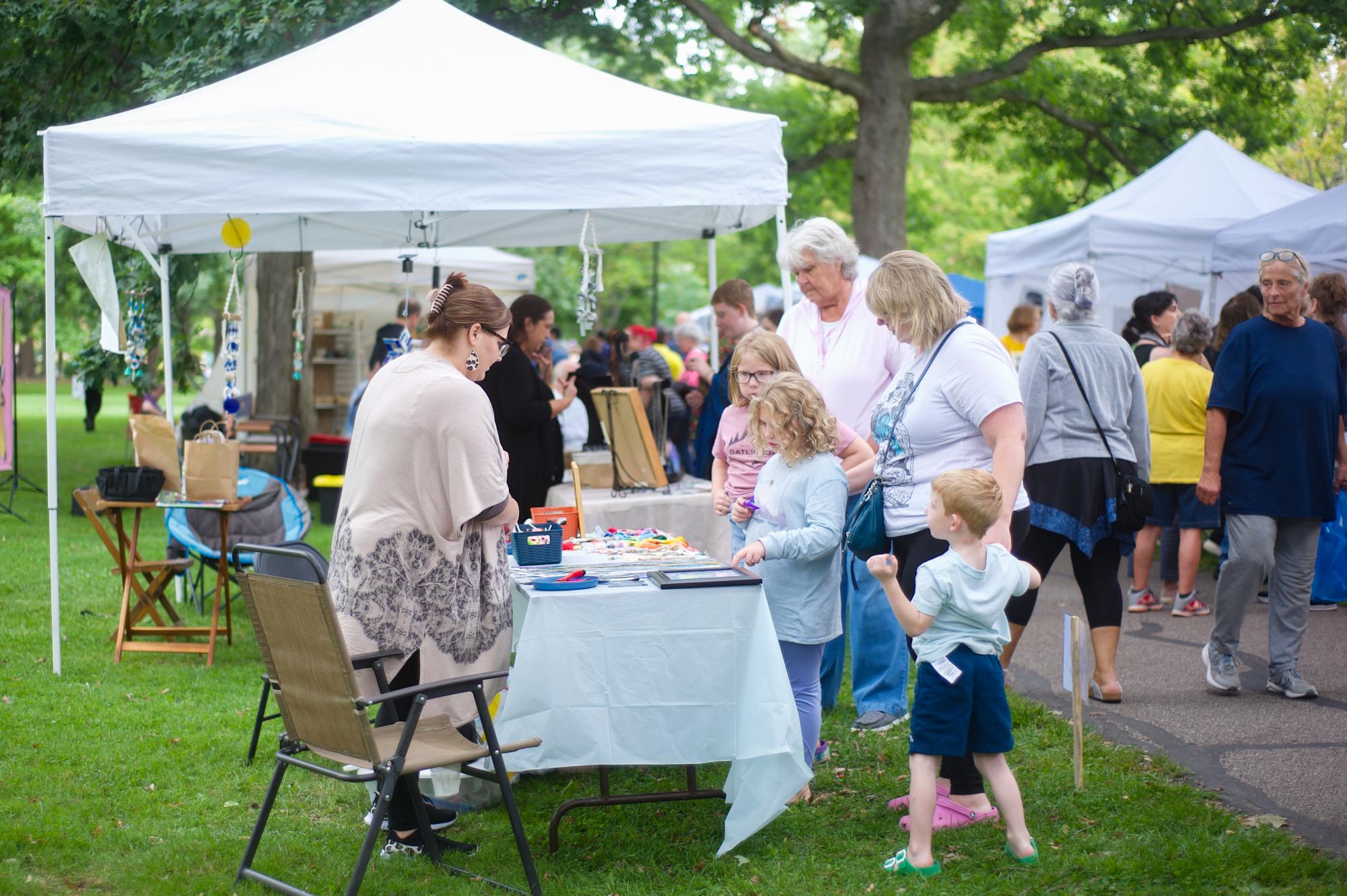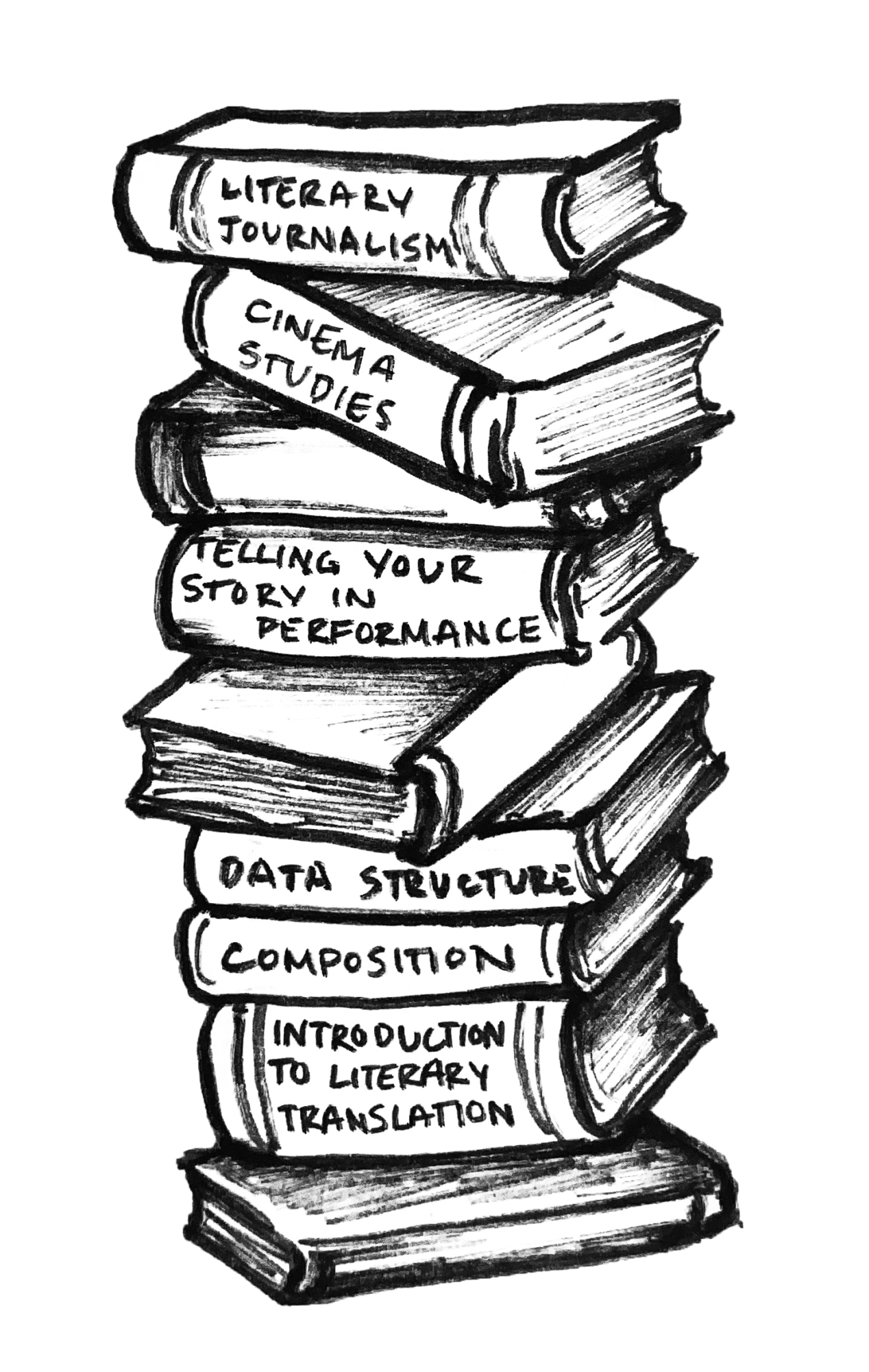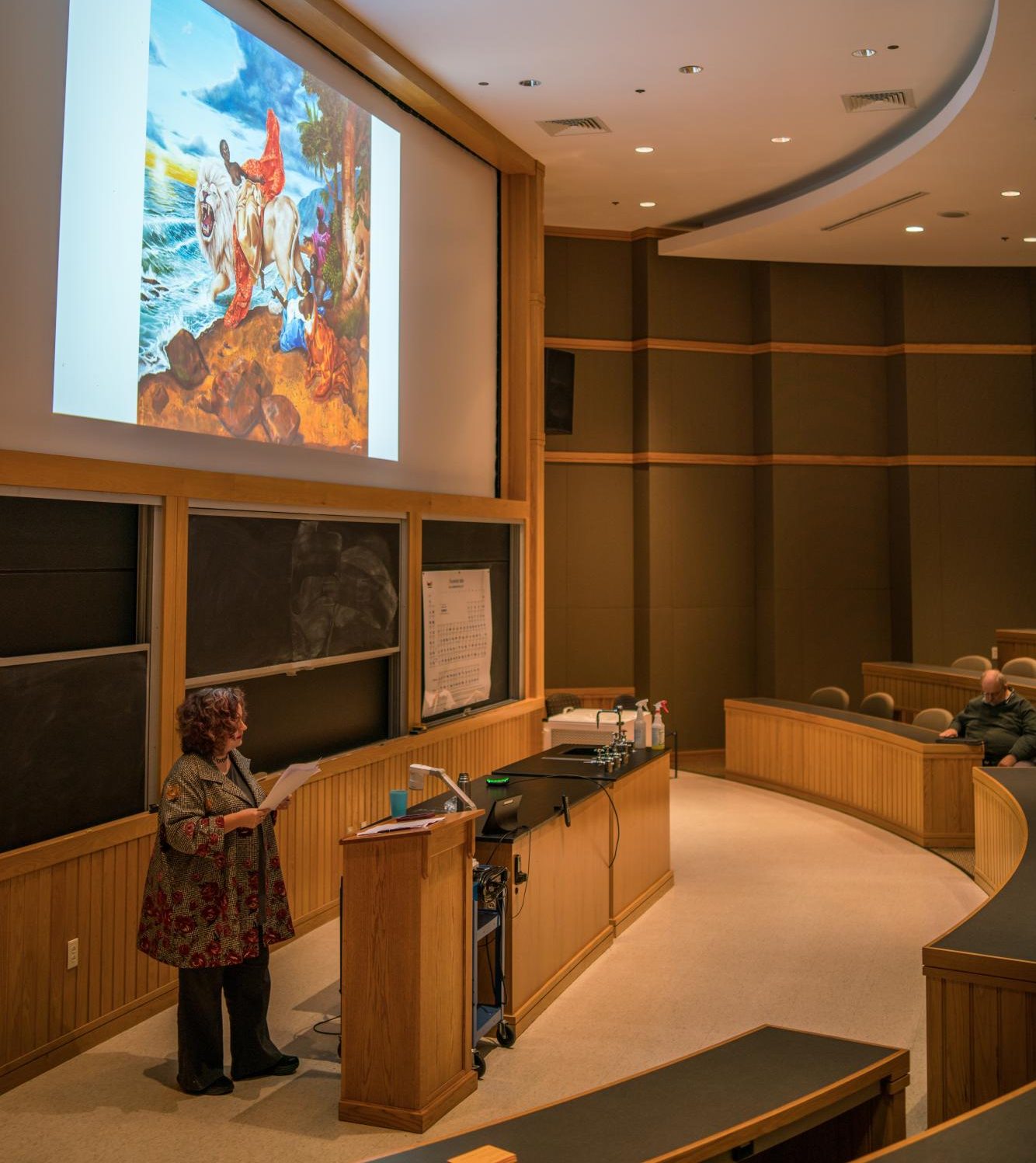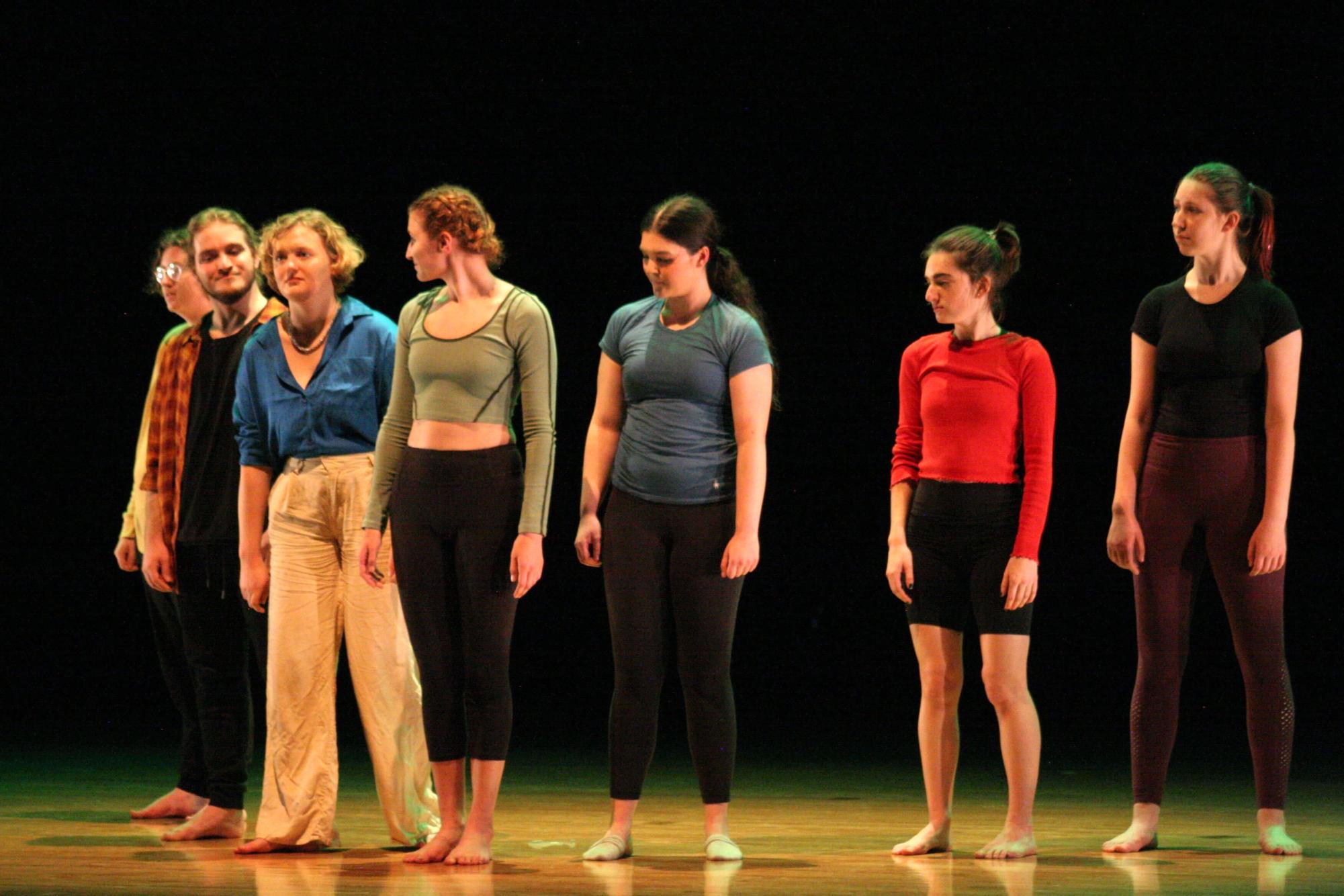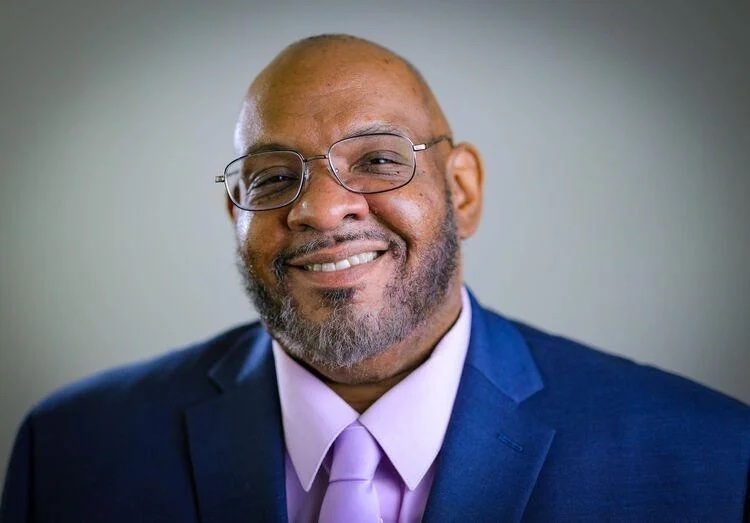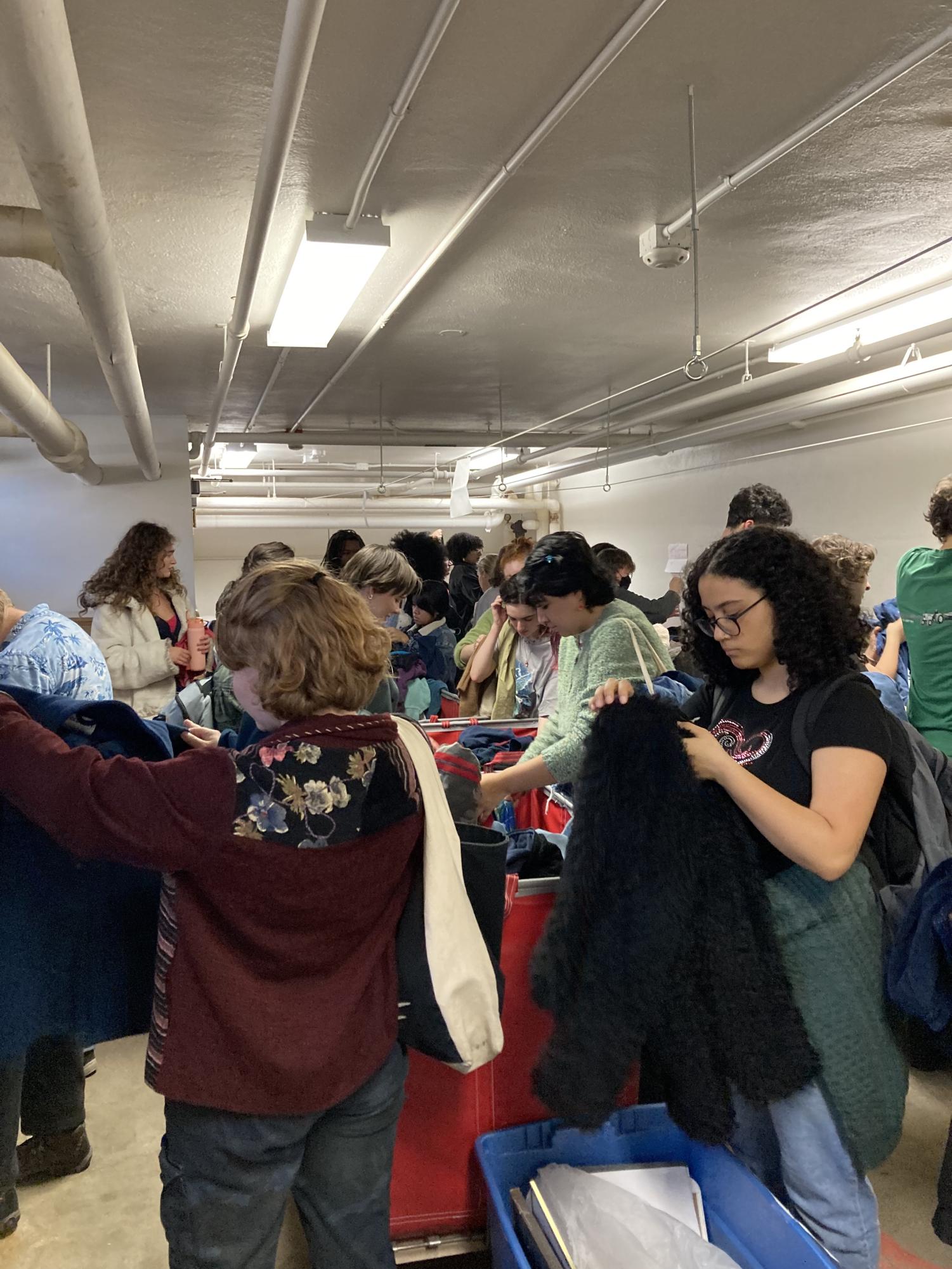Kenny Endo Contemporary Ensemble Talks Identity in 45th Anniversary Tour
Oberlin College Taiko hosted the Kenny Endo Contemporary Ensemble for a performance and panel Monday.
The Kenny Endo Contemporary Ensemble performed Monday in Finney Chapel, showcasing a variety of different instruments and music styles as part of its 45th Anniversary Tour, “Breaking through Tradition to Innovation.” The performance was preceded by a panel in which members of the ensemble discussed topics relating to music, culture, activism, and identity. Oberlin College Taiko hosted both events and opened the concert with an Oberlin College original taiko piece. Additionally, double-degree fifth-year Morgan Chan, a member of OCT, was featured on violin in two of the ensemble’s pieces.
Kenny Endo is one of the leading names in taiko and percussion in North America and Japan. He has been composing, innovating, and performing taiko for over 45 years, and he was the first non-Japanese national to be honored with a natori, or stage name. His ensemble featured highly skilled fellow musicians Kaoru Watanabe on nohkan, shinobue, otsuzumi, and taiko; Sumie Kaneko on koto, shamisen, and vocals; Abe Lagrimas Jr. on ukulele, vibraphone, and drums; and Sho’on Shibata on taiko and percussion.
Endo’s music combines traditional taiko drumming with elements of American jazz, funk, Cuban, and Hawaiian music. The style of the pieces the ensemble performed Monday ranged widely from more introspective, traditional-inspired pieces like “Sounds of Kabuki,” which incorporated vocals from traditional kabuki theater, to fierce, fast-paced pieces like “Symmetrical Soundscapes,” which incorporated elements of Brazilian Samba and Japanese festival music. There were also pieces like “Swing, Soul & Sincerity,” which was inspired by Bobby McFerrin and blended elements of American jazz traditions and taiko.
Many of the works played at the concert were also closely tied to social justice and humanitarian causes. “Yume no Pahu (Dream of the Pahu Drum)” was inspired by Hawaiian and Tahitian rhythms. In the program, Endo dedicates the piece “to the indigenous people of Hawai’i in support of their struggle to control their land, their culture, and their destiny.” Additionally, “Ame – Tears of the Earth” was originally written after 9/11, but on Monday, Endo dedicated this song to the people of Ukraine.
This theme of social justice was also present in the panel. Endo explained the reasons he likes to write pieces that relate to humanitarian issues.
“There are a lot of different ways to express yourself and to express your concern about things going on in the world,” Endo said. “I believe that in general, music has the potential to bring about change, to transform people, to heal people.”
The panel also brought up discussions about identity and sharing cultural art forms. The members of the ensemble talked about what it means to borrow a cultural art form and the ways in which they attempt to honor the tradition.
“You have to really understand what it is that you’re going to be portraying,” Shibata said. “If you’re going to be a representative of that music, you have to make sure that you’re properly giving the cultural background and acknowledging what it is you’re borrowing from and for what reason you’re borrowing it.”
Shibata also pointed out that one of the things he likes most about Endo’s pieces is that when he borrows rhythms and sounds from other cultures, he uses them as a vehicle to further humanitarian causes.
Endo also hosted a workshop for OCT members to improve their taiko playing. Fourth-year Harper Ross, a member of OCT and one of the organizers of the events, pointed out how exciting it was to learn taiko from someone who has been studying it for such a long time.
“The opportunity to work with this taiko grandmaster who was the first non-national to be bestowed this natori, or stage name, is such a huge honor,” Ross said.
They also noted that going forward, the group’s members can use a lot of what they learned from the ensemble to inform how they think about the art form and how they interact with the topics.
“There’s so many different ways to exist in a taiko community and in a space that has taiko, and none of them are incorrect as long as you’re paying homage to where the form has come from and the other people that are in the space,” Ross said. “Just knowing that we can all come from very different places and still find ways to innovate together in a way that moves the form forward — I think that was present in all three events, and I loved that.”
Ross also noted some of the things that they love about taiko as an art form more generally.
“I love the sound of the drum and the way that you can feel it in your body,” they said. “I love that it’s physical, it’s musical, and the sound for other people is also producing a physical response. It makes me feel very powerful. It makes me feel very empowered.”
Endo also talked about the physical aspect of taiko and what originally drew him to the art form.
“When I first heard taiko, it was the sound that affected me the most,” Endo said. “It was a sound that you could not only appreciate with your ears but you could feel down to your bones.”
He also said that taiko gave him a way to connect to his Japanese heritage in a way that he hadn’t previously had the opportunity to do.
Shibata also spoke about some of his favorite aspects of taiko, in particular the music that he plays as part of the ensemble.
“It’s always fun to play with Kenny and whomever he’s playing with because it’s different every night,” Shibata said. “There’s a lot of improvisation happening, so it’s like you never quite feel totally comfortable with everything, but it keeps you really grounded in the moment and really focused.”
Ross said that this event was a great opportunity to get Oberlin community members back into the taiko space after the pandemic forced them to take a step back. They mentioned that anyone wishing to get involved with taiko can sign up for the beginner ExCo.
“What you saw up here, we can be doing that kind of stuff too,” Ross said. “If you have a vision, come join us.”


